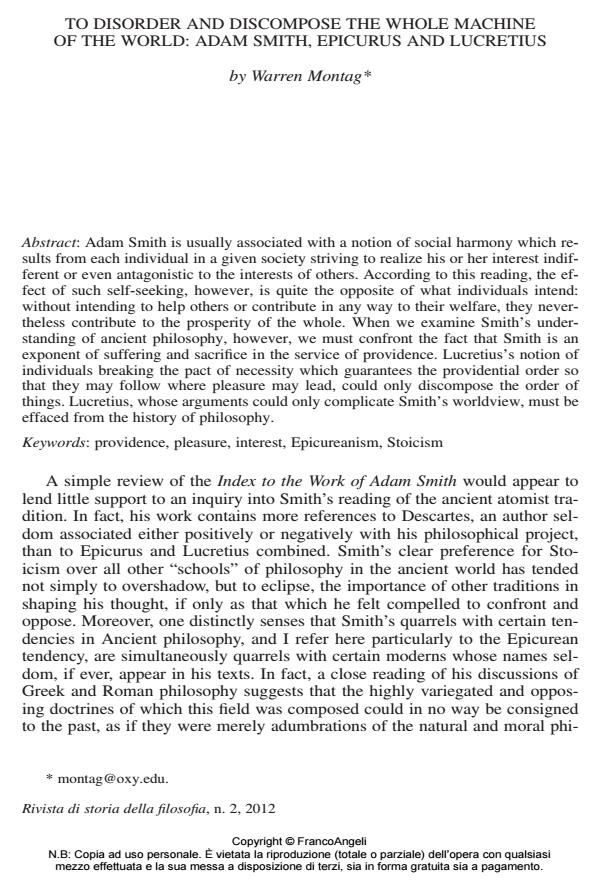To disorder and discompose the whole machine of the world: adam smith, epicurus and lucretius
Journal title RIVISTA DI STORIA DELLA FILOSOFIA
Author/s Warren Montag
Publishing Year 2012 Issue 2012/2
Language Italian Pages 10 P. 267-276 File size 471 KB
DOI 10.3280/SF2012-002005
DOI is like a bar code for intellectual property: to have more infomation
click here
Below, you can see the article first page
If you want to buy this article in PDF format, you can do it, following the instructions to buy download credits

FrancoAngeli is member of Publishers International Linking Association, Inc (PILA), a not-for-profit association which run the CrossRef service enabling links to and from online scholarly content.
Adam Smith is usually associated with a notion of social harmony which results from each individual in a given society striving to realize his or her interest indifferent or even antagonistic to the interests of others. According to this reading, the effect of such self-seeking, however, is quite the opposite of what individuals intend: without intending to help others or contribute in any way to their welfare, they nevertheless contribute to the prosperity of the whole. When we examine Smith’s understanding of ancient philosophy, however, we must confront the fact that Smith is an exponent of suffering and sacrifice in the service of providence. Lucretius’s notion of individuals breaking the pact of necessity which guarantees the providential order so that they may follow where pleasure may lead, could only discompose the order of things. Lucretius, whose arguments could only complicate Smith’s worldview, must be effaced from the history of philosophy.
Keywords: Providence, pleasure, interest, Epicureanism, Stoicism
Warren Montag, To disorder and discompose the whole machine of the world: adam smith, epicurus and lucretius in "RIVISTA DI STORIA DELLA FILOSOFIA" 2/2012, pp 267-276, DOI: 10.3280/SF2012-002005